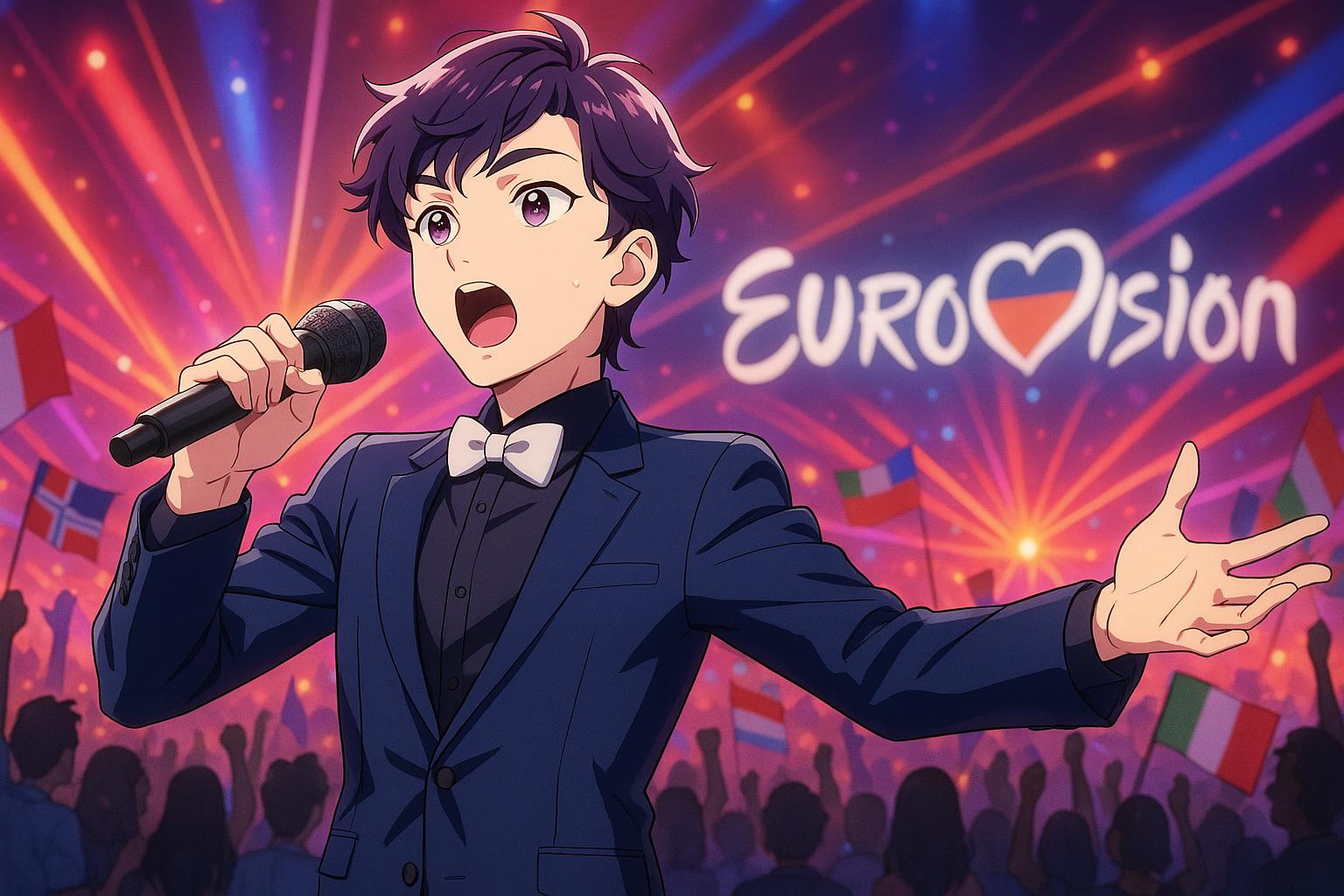Broadcasting live from St Jakobshalle in Basel, Switzerland, the 2025 Eurovision Song Contest unfolded on 17 May, showcasing a vibrant clash of musical talents from across Europe. This year's spectacle, aired through a variety of platforms including BBC iPlayer, BBC One, Radio 2, and BBC Sounds, featured 26 acts competing for the celebrated trophy.
The event was navigated by presenters Hazel Brugger, Michelle Hunziker, and Sandra Studer, yet their pre-recorded opening segment failed to resonate with viewers, sparking widespread disappointment. Social media platforms buzzed with criticisms, as many took to X, formerly known as Twitter, to express their disdain. One viewer lamented the consistently "cringe" hosting, while another declared their enjoyment of the "randomness" of the hosts' costumes, underscoring a divide in viewer reception. A particularly poignant commentary noted the awkwardness inherent in the show's intros, with expressions of amusement and exasperation alike.
Despite these criticisms, the event was infused with excitement, particularly through the commentary provided by Graham Norton. Known for his witty insights, Norton remained a highlight of the evening, which also encompassed a storied cameo appearance in Doctor Who, where he informed the character played by Ncuti Gatwa of an impending global catastrophe. His dual presence that night has become something of a legend in entertainment circles.
Musically, the contest crowned Austria's JJ, a 24-year-old countertenor, as the champion with his operatic techno-pop fusion piece "Wasted Love." This victory marked Austria's first win since Conchita Wurst's acclaimed triumph in 2014. JJ's performance was celebrated for its emotional depth and lyrical resonance, earning commendations from political figures, including Austrian Chancellor Christian Stocker. The event captured a massive global audience of over 160 million, highlighting Eurovision's unifying power amidst a backdrop of escalating political tensions.
This year's contest was not without its controversies, particularly surrounding Israel's participation. The inclusion of Yuval Raphael, an artist who survived the harrowing events of the Hamas attack in 2023, led to significant protests reminiscent of previous Eurovision years. Calls for her exclusion from the competition arose from pro-Palestinian groups, coinciding with prominent demonstrations during her performance. Although Eurovision prides itself on a stance of political neutrality, the event’s tapestry was undeniably affected by the ongoing turmoil in Gaza. In response to these tensions, organisers have endeavoured to emphasise values of unity and inclusivity, allowing diverse flags in the audience while restricting performers to national representations.
Furthermore, the contest featured a diverse array of musical acts. Notable mentions included Estonia's Tommy Cash, whose playful track "Espresso Macchiato," steeped in Italian parody, sparked discussions around cultural representation. Despite some backlash from Italian media, many locals embraced the novelty and fun of the song, focusing instead on supporting their own contestant, glam rock artist Lucio Corsi. Meanwhile, Malta offered a lyrical twist with "Serving," a performance that faced scrutiny and modification due to its suggestive language, exemplifying Eurovision's fine line between artistic expression and public sentiment.
As the competition drew to a close, it became evident that Eurovision continues to serve not merely as a musical contest, but also as a reflection of social and political currents intertwining with the arts. Whether through the joy of unexpected performances or the discourse surrounding representation and controversy, the event remains a complex tapestry of culture, identity, and community.
Reference Map
- Paragraphs 1, 2, 3, 4
- Paragraphs 5
- Paragraphs 5
- Paragraphs 5
- Paragraphs 6
- Paragraphs 6
- Paragraph 7
Source: Noah Wire Services
